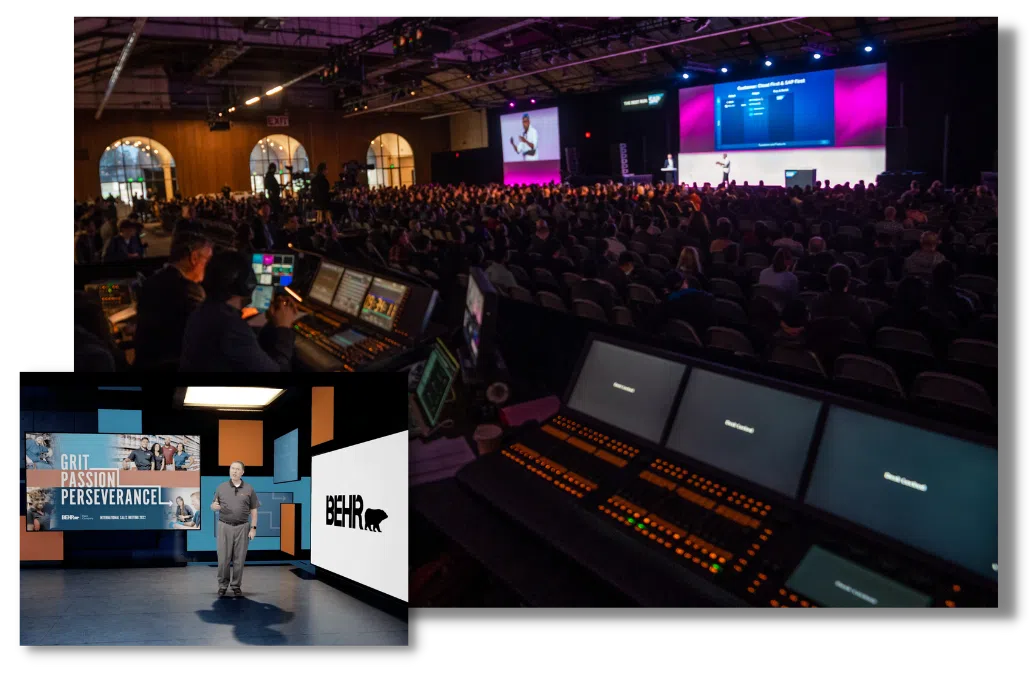Behind the Scenes: The Magic of Successful Event Productions
Understanding Exactly How Occasions Production Functions: A Comprehensive Review of the Process
The intricacies of occasion manufacturing demand a systematic approach that incorporates numerous phases, each playing a critical duty in the overall success of an event. From the first planning and idea growth to the meticulous sychronisation of logistics, every component must line up flawlessly to accomplish the wanted end result. Understanding the nuances of budgeting, source appropriation, and on-site management is necessary for any kind of professional in this area. As we check out these parts further, it becomes apparent that the procedure is not simply concerning implementation but also regarding constant enhancement and critical analysis. What insights can we glean from each phase?
Preliminary Planning and Concept Development
Effective first preparation and principle development function as the structure for successful occasions manufacturing. This stage includes specifying the occasion's function, target audience, and desired end results. A clear vision is essential; it overviews all succeeding decisions and aids line up the team's efforts towards a typical goal.
During this stage, brainstorming sessions can be important. Engaging stakeholders, consisting of customers, sponsors, and possible participants, promotes a collaborative setting that creates ingenious ideas. In addition, detailed market research study ought to be conducted to comprehend trends, choices, and possible difficulties.
Once the principle is established, it is essential to develop a thorough event synopsis. This rundown must include the occasion's theme, style, and key tasks. Establishing a timeline is equally crucial, as it assists to manage due dates and jobs successfully.
Budgeting and Resource Allowance
With a solid concept in location, interest must turn to budgeting and resource allocation, which are important components in carrying out the event successfully. A well-defined spending plan offers as a roadmap, describing all anticipated expenses and offered resources - Event Productions.
Resource allotment involves assigning both human and financial resources to numerous tasks and components of the event. Prioritization is essential; essential components ought to get ample financing while much less vital aspects may require an extra conventional strategy. Backup planning is important-- assigning a portion of the spending plan for unforeseen expenditures can reduce financial threats.
On top of that, efficient communication amongst staff member pertaining to budget plan restraints promotes collaboration and innovation. This advertises the liable use resources and motivates creative remedies to stay within spending plan. Inevitably, a calculated approach to budgeting and source allowance lays the groundwork for a successful occasion, enabling organizers to concentrate on providing an unforgettable experience for guests while maintaining monetary honesty.
Logistics and Coordination
Navigating the complexities of logistics and sychronisation is necessary for the smooth execution of any type of event. This stage includes meticulous planning and company to make sure that all elements work in consistency. Trick elements include place option, transport arrangements, and the scheduling of various tasks.
This includes comprehending the layout, access factors, and readily available sources. Coordinating these aspects needs partnership with suppliers, suppliers, and transportation solutions to ensure timely deliveries and pick-ups.
Another vital aspect is the growth of a thorough timeline that outlines all logistical elements leading up to the event. This timeline functions as a roadmap, outlining essential milestones and due dates for jobs such as tools setup, catering services, and audiovisual setups. Routine interaction with all stakeholders is vital to resolve any possible issues proactively.
Implementation and On-Site Management
Effective implementation and on-site monitoring are crucial for transforming precise plans into truth throughout an occasion. Their ability to make real-time decisions can dramatically influence the event's success.
A well-defined timetable is crucial, acting as a roadmap for all activities. Occasion supervisors have to ensure that arrangement takes place promptly, adhering to timelines for sound checks, providing distributions, and this content guest arrivals. Efficient analytic skills are also crucial; unanticipated challenges can develop, needing fast reasoning and versatility to maintain the occasion's flow.
In addition, interest to guest experience is critical. Checking visitor communications, making certain safety protocols are followed, and supplying support staff to address concerns fosters a favorable atmosphere. This level of interaction not only improves the overall experience however additionally reflects the expertise of the event team. Event Productions. Eventually, successful execution and on-site monitoring depend upon comprehensive prep work, effective communication, and a commitment to providing an outstanding occasion for all included.

Post-Event Evaluation and Comments
The conclusion of any occasion exists not only in its implementation yet additionally check my reference in the detailed analysis that complies with. Post-event assessment is crucial for identifying the general success of the occasion and recognizing locations for enhancement. This process typically entails gathering feedback from different stakeholders, consisting of attendees, vendors, and team members, to acquire a comprehensive viewpoint on their experiences.
To structure the evaluation, occasion coordinators frequently utilize meetings and surveys, focusing on crucial efficiency indications such as guest satisfaction, logistical performance, and spending plan adherence. Assessing this data allows organizers to examine whether the occasion satisfied its purposes and to comprehend the toughness and weak points of the implementation.
By methodically dealing with comments and carrying out modifications, occasion professionals can boost their techniques, ultimately leading to more successful and impactful events. In verdict, post-event analysis is an important action in the occasion manufacturing process that makes sure ongoing growth and quality in future ventures (Event Productions).
Final Thought

The intricacies of occasion production demand a methodical approach that incorporates multiple stages, each playing an important function in the total success of useful site an event.With a strong principle in place, attention should transform to budgeting and source allocation, which are crucial elements in performing the event efficiently.Source allowance involves assigning both economic and human sources to different jobs and elements of the event. Eventually, a tactical technique to budgeting and resource allocation lays the groundwork for an effective occasion, enabling organizers to concentrate on providing a memorable experience for participants while maintaining monetary honesty.
